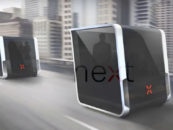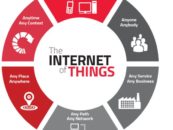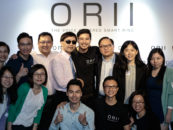
Founder of Pebble Eric Migicovsky Shares Lessons with Hong Kong Entrepreneurs
by Fintech News Hong Kong April 17, 2017Organised by Brinc, KPMG and Invest HK, the founder of Pebble, Eric Migicovsky shared what he learned during his 8-year entrepreneurial journey at Pebble last Thursday evening.
From the name “Pebble”, to Kickstarter hero and the whole process of launching the product. Eric shared his lessons learned from Pebble – they launched the product at the very early stage even sold their prototypes and got the feedback from the real customers.
The reason for this is that Eric thinks getting validations from friends and family can be very bias as they tend to be more positive and supportive for the project you’re doing, plus they don’t really need to pay for the product so the less valuable feedback got from them would limit entrepreneurs to develop their product-market fit.
“Most startups they succeed when they actually make something people want to use. A lot of startups feel hesitating to put their making product into people’s hand because they’re worried if the first impression is good enough. It’s no point to be working so hard for your first version and make it perfect, as it will take you months and months. Instead, it’s much more productive to make something work and resolve the real problem.” – Eric
 Also, Eric did so-called NDA backers/ developers that sending out 500 watches to their early adopters who agreed to input their feedback about their products without posting anything public. He also admitted that they made some mistakes, which includes over focused at the retail and less time for building the community. However, it’s very essential and important for an entrepreneur to know how to keep the balance.
Also, Eric did so-called NDA backers/ developers that sending out 500 watches to their early adopters who agreed to input their feedback about their products without posting anything public. He also admitted that they made some mistakes, which includes over focused at the retail and less time for building the community. However, it’s very essential and important for an entrepreneur to know how to keep the balance.
Getting the feedback from real customers at the early stage is key to success for startups.
Compared with software startups, hardware startups seem to be more difficult to be succeeded to become a unicorn from dominating its niche market. The reason for this is that hardware is hard to make but easy to copy. It doesn’t mean that software is necessarily harder to copy, but the basal principle difference between these two type companies.
For instance, software users are only able to use the functions the software company builds but harder to know how it was built, whereas once a hardware product has been built and launched in the market it’s open to everyone to understand and copy the components.
More importantly, the mystery of software unicorn companies is connecting users by either its technology compatibility or networking platform that makes an unbeatable and growing kingdom, such as Microsoft and Facebook.
Although some might think Eric was overconfident and could avoid some mistakes to lead Pebble to a better place. The lessons he got, however, have never been as same as learning from other’s failure.
Eric encourages entrepreneurs to share their ideas with people to get validations so as to help the startup to grow at the early stage. Fear to be copied by competitors and a lack of confidence won’t drive a successful startup.
In case you missed the event, you can check the full coverage live on Brinc.io Facebook page








